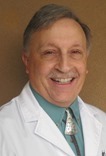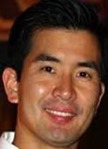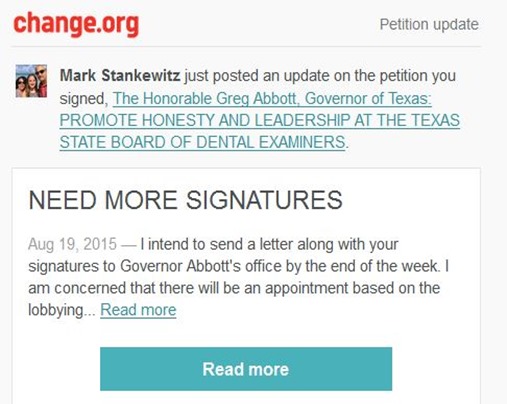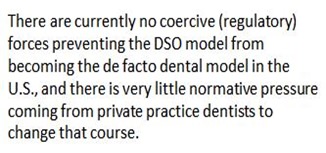
Dr. Michael W. Davis maintains a general dental practice in Santa Fe, NM. He serves as chairperson for Santa Fe District Dental Society Peer-Review. Dr. Davis also provides a fair amount of dental expert legal work for attorneys. He may be contacted via email: MWDavisDDS@comcast.net.
A newly formed group of grassroots Texas dentists has challenged activities of the American Dental Association (ADA), with the Association of Dental Support Organizations (ADSO). In an open letter to ADA House of Delegates members, Concerned Dentists of Texas, Inc. has expressed their concerns about ADA leading officials meeting with ADSO representatives. The ADSO has gone so far as to highlight these meetings in their public online marketing. Concerned Dentists of Texas contend these clandestine meetings were unsanctioned and violate established ADA rules and protocols. They also express that the ADA’s appearance of collusion is highly evident and problematic.
Membership of the ADSO raised more than a few eyebrows. Of note in the ADSO membership is Aspen Dental Management, Inc. Aspen Dental in recent months has formally signed individual and separate legal settlement agreements, with the state attorney generals of Massachusetts, New York, and Indiana. These settlements allege specific violations ranging from unlicensed practice of dentistry, violations to consumer protection laws, false and misleading advertising, violations to full disclosures in consumer borrowing, bait-and-switch business schemes, etc.
Another ADSO member, Heartland Dental Care, Inc., in 2008 settled with the federal government for alleged Medicaid fraud for falsification and misappropriation of doctors’ Drug Enforcement Agency (DEA) numbers. This DSO also settled with the State of North Carolina in 2011, for alleged unlawful attempt to purchase a dental practice.
To follow is the open letter of Concerned Dentists of Texas, Inc. to ADA House of Delegates membership:
October 27, 2015Link to the entire letter including attachments
Dear ADA Delegates and Alternate Delegates,
Approximately 80% of ADA members practice as independent dentists in small local offices. We are a concerned part of that group. There is an effort by our ADA to support a corporate form of dentistry that we believe is counter to the best interests of our members and our patients. We must ask ourselves, will the ADA support its members or will it support organizations controlled and owned by hedge funds, private equity firms, and public pension plans? The increased proliferation of this type practice model poses serious risks to our 175 year established philosophy of patient care and the doctor-patient relationship.
By not taking a stand to inform and represent the majority of its current members the ADA actively supports the DSO philosophy. This is a membership gamble that the ADA cannot afford to take.
See attachments (pages numbered 1-4) documenting these major changes in the focus of ADA activities:
Page 1 &2. Breaking News Notable Joint Meeting: ADSO & ADA … Several workforce group meetings were held with ADSO (Association of Dental Support Organizations) and ADA representatives seeking a memorandum of understanding.
Page 2 & 3. The last 2 pages of a presentation asking for “collaboration”, “harmony”, and “input” between the ADA and DSOs given at the 2015 ADSO Summit that demonstrates the position ADA is taking regarding the DSOs mode of practice.
Page 1 & 4. The ADSO website screen shots showing proof of this presentation given by the ADA at the 2015 ADSO Summit and then subsequently removed from the website while the other presentations remained.
These changes are affecting the future of the private practice of dentistry and are occurring without bringing it before the House of Delegates for your vote or discussion.
Over five years of steadily decreasing membership will not be corrected by failing to inform and represent our current practicing members. Rather, the reversal of the trend will be affected by building relevancy and reason for belonging based on representation, transparency, accountability and adherence to long-established principles of professionalism, patient care, and enhancement of the traditional doctor-patient relationship
- What does our House of Delegates want in regards to support of the private practice of dentistry?
- What do 80% of our practicing members want in support from their Association? Will the Tripartite support its members?
- What are our ADA candidates’ opinions and beliefs on the future models of dentistry?
- Will they be willing to support the majority of our ADA members and their autonomy?
s.
Thank you for allowing us to express our concerns and personal opinions. Opinions are our own, but facts are facts. Please look forward to a blog, Concerned Dentists of Texas, which will further address these issues. The blog will serve as an informational source and reference site in order that members may stay informed. Please feel free to contact us at concerneddentistsoftexas@gmail.com.
Sincerely,
Concerned Dentists of Texas, Inc.
Attachments







